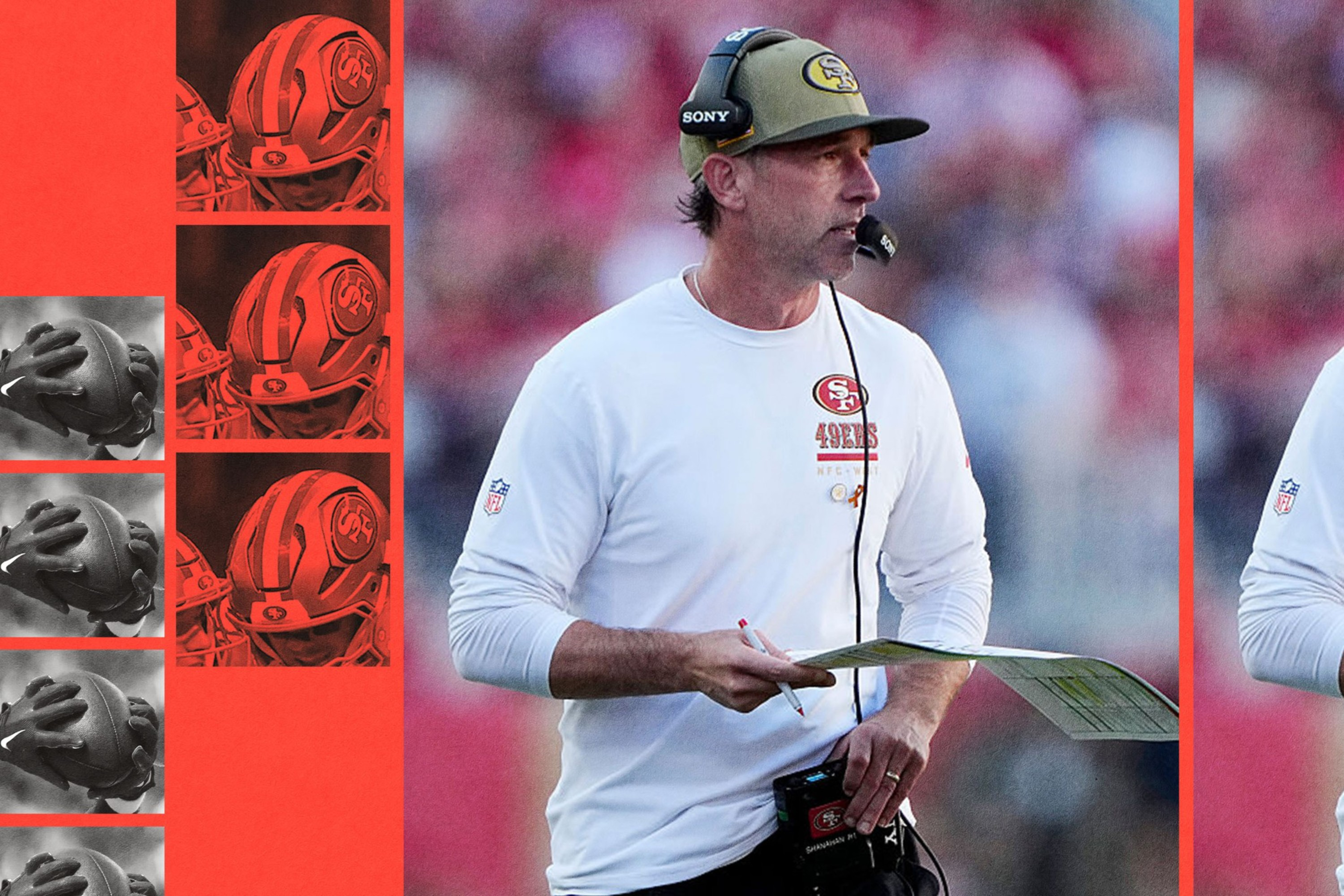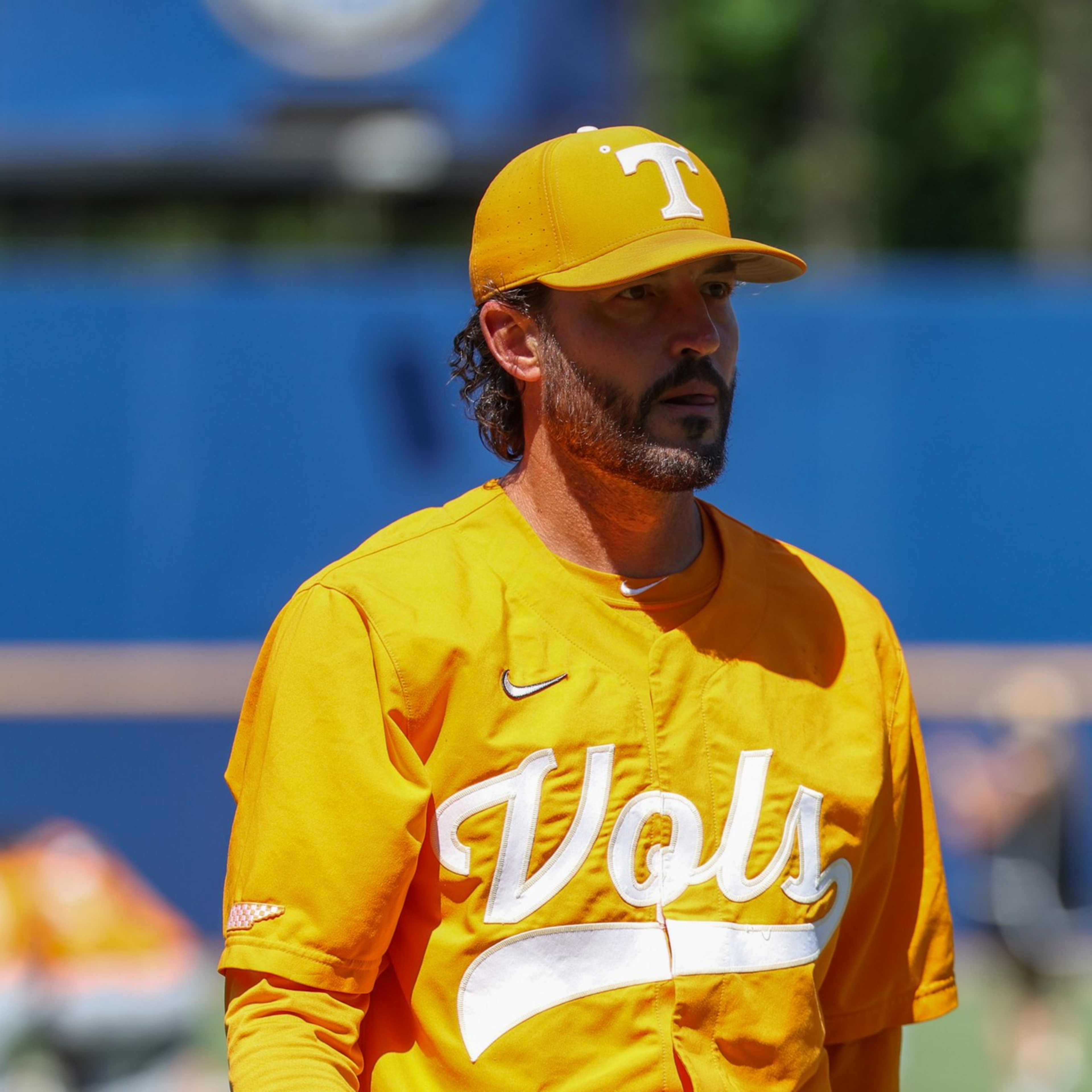Want more ways to catch up on the latest in Bay Area sports? Sign up for the Section 415 email newsletter here and subscribe to the Section 415 podcast wherever you listen.
Buster Posey’s risky move to hire University of Tennessee coach Tony Vitello as the Giants’ next manager has been well received by many fans despite a justified skepticism rooted from Vitello’s lack of experience in pro ball.
With this historic NCAA-to-MLB transition, Posey is banking on Vitello’s success in Knoxville translating in San Francisco. But Vitello has a laundry list of challenges ahead and many steps to take to begin winning over fans and his players.
Here are five.
Adjusting to life after college
In college ball, regular seasons are 56 games, roughly a third of a big-league season, with a Friday-Saturday-Sunday conference series and non-conference games Tuesday and/or Wednesday. In the majors, teams can exceed 200 games a year with 162 in the regular season, another month in spring training, and whatever comes in the postseason. The game-planning, in-game strategies, and dealing with players on a daily basis are all drastically different.
With few off days, Vitello must better pace himself over the long grind and know when to pull a starter, which relievers to use, and when and how to keep position players fresh. It’s an adjustment. College hitters use metal bats. Relievers don’t face a three-batter minimum. The majors have no mercy rules or curfew policies, and no big-leaguer has to maintain a certain GPA. Just a good ERA or OBP.
Section 415: KNBR’s Adam Copeland on the future of sports talk radio

Section 415: Brock Purdy, Mac Jones, and the 49ers’ path to the playoffs

Section 415: Making sense of the Warriors’ uneven start

Vitello has had some extreme rah-rah teams with players known to do some heavy razzing directed at the opposition. Yes, it might be common in some amateur ranks but not so much at the highest level. That would need to be toned down, unless Drew Gilbert has completely revitalized the Giants’ culture.
In his playing days, Posey wasn’t necessarily a rah-rah guy and knew the importance of respecting the opponent. He was far more measured than animated teammates Hunter Pence, Pablo Sandoval, Brian Wilson, and Tim Lincecum. Then again, having been surrounded by those guys, he realizes the benefits that outgoing personalities can have in the clubhouse and on the field. Which is a good reason he hired Vitello.
Building a diverse staff
Vitello can’t take in a bunch of college-level coaches on his staff. At Tennessee, he had a limited number of paid assistants but a huge support staff. He would benefit from a grizzled coach alongside him in the dugout. A Ron Wotus type.
In fact, Wotus would be a perfect bench coach. He’s such a good soldier, baseball man, and organizational lifer that he has succeeded under five managers (Dusty Baker, Felipe Alou, Bruce Bochy, Gabe Kapler, Bob Melvin) and has been a prized resource in recent years as a special assistant – suiting up and working with players before games and hanging with Posey’s inner circle during games.

Melvin’s coaches were told they could seek other employment, but holding on to a few would provide some continuity with players, starting with pitching coach J.P. Martinez and first-/third-base coach Mark Hallberg. Pat Burrell, Damon Minor, and Garvin Alston have been extremely valuable to the organization, and Oscar Bernard has built a relationship with Rafael Devers.
Connecting with players
It’s one thing for Vitello to get college kids with no leverage to buy into his program; it’ll be another to get accomplished big-leaguers with millions in the bank to do the same. He’s no longer recruiting kids out of high school, junior college, and the transfer portal. He’s inheriting a roster put together by Posey and GM Zack Minasian.
Vitello can use his dandy salesman techniques that landed him many of the nation’s top recruits to make Giants players and free agents believe in him and his style of overseeing a roster. Yes, the SEC might be the closest thing in amateur ball to the big leagues, but the Giants have just two players on their 40-man roster from the SEC: Drew Gilbert and Blade Tidwell, both from Tennessee.
Vitello’s first order of business is learning and respecting the tendencies of Devers, Willy Adames, Matt Chapman and Logan Webb, and we trust he already has reached out to them all. If they endorse Vitello, it’ll be far easier for the rest of the roster to buy in. Players can say all they want about how excited they are about Vitello, but the big test will come when they get on the field and do this for real. Only then will we see if they’ll play for him.

Posey would love for Vitello to evolve into a key recruiter on the free-agent market, though the best talking point in those negotiations is dollars. Ownership’s commitment is the base of all negotiations, but if the convincing Vitello could help close a deal or two, he’d be a difference-maker. Not just with the prime free agents – this year’s class features outfielder Kyle Tucker and starting pitchers Dylan Cease, Ranger Suárez, Framber Valdez, and Zac Gallen – but the middle-of-the-road guys, too.
Embracing history
One extreme difference between Posey and Farhan Zaidi is that Posey is more inclusive and open to different ideas. For example, he knocked down a wall between two booths on the broadcast level of the press box so that many of his assistants could squeeze into a bigger room to watch games together and express their thoughts.

Also, Posey invited about a dozen former Giants players to spring training to spend a week apiece working with young players. The gesture was warmly received in the clubhouse. Zaidi wanted little to do with Giants of the past or their messaging. Of course, Melvin was all in on welcoming alumni. He’s one of them and leaned on their expertise throughout training camp.
Posey needs to educate Vitello on these former stars and make sure they’re a vital part of spring training and beyond. That certainly includes Barry Bonds and Will Clark, who were noticeably present more during the summer once Posey took over. Their teachings on hitting and the game overall are invaluable.
Beating L.A.
Most of all, this is about competing with the Dodgers in the National League West. The Giants went 7-19 against the Dodgers and second-place Padres, and that’s not acceptable in Posey’s world. It shouldn’t be in Vitello’s, either.
Posey knows he can’t come close to the Dodgers’ resources or spending habits, but if he can build a winner around the fiery Vitello, with the Giants eventually out-thinking, out-energizing, and even out-playing the Dodgers, it’ll be mission accomplished.
Vitello turned a mediocre Tennessee program into a national power, and now he takes over a mediocre big-league team. By mediocre, we mean 81-81, which has been the Giants’ ceiling the past four seasons. One playoff appearance in nine years can lead to extreme and drastic measures, and that’s what we have with Posey hiring Vitello.

